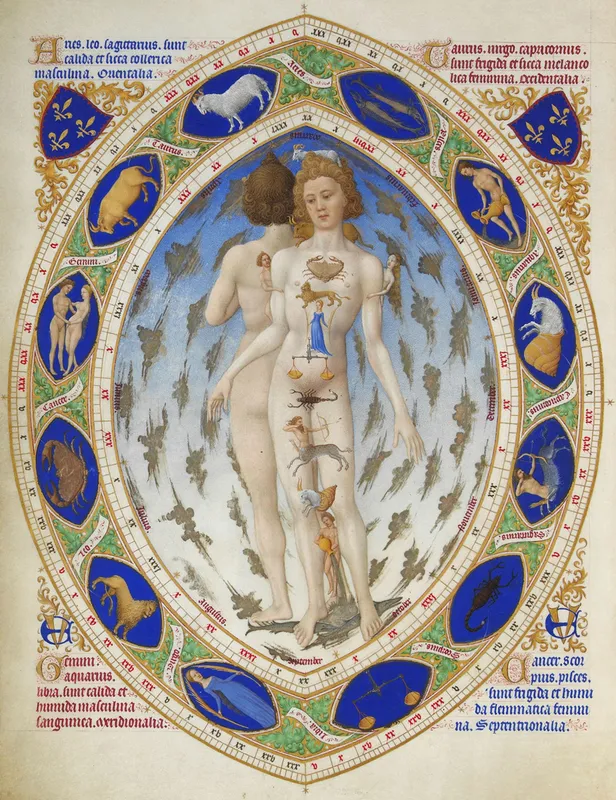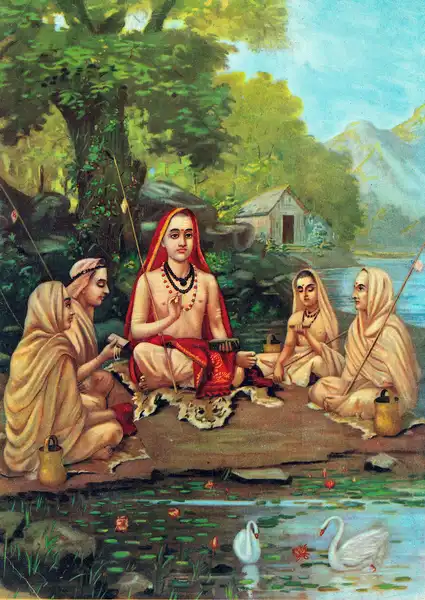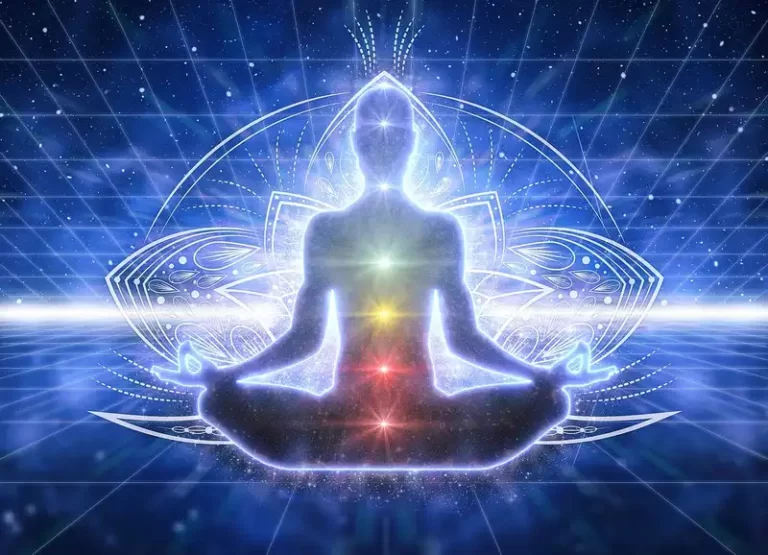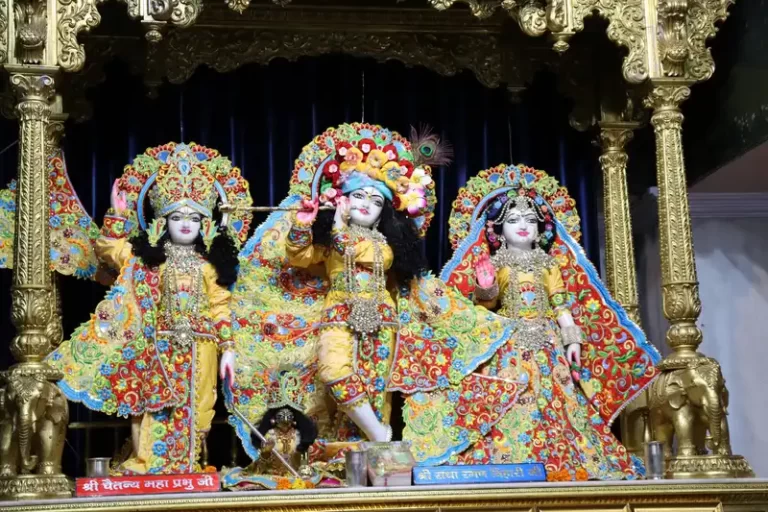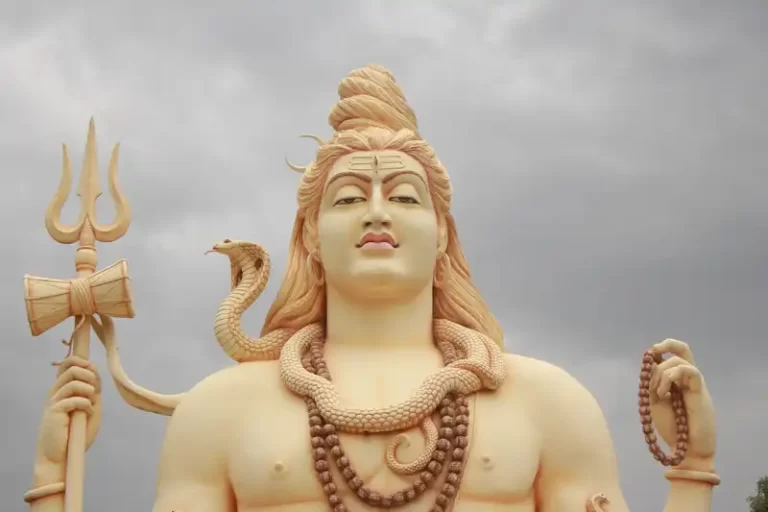Hindu Beliefs: Exploring the Core Concepts of Hinduism
Introduction to Hindu Beliefs:
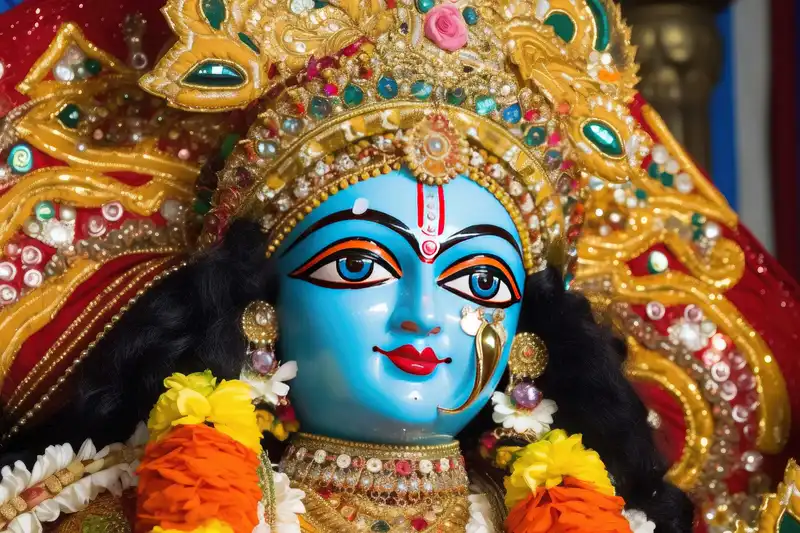
Hinduism, an intricate ancient tradition, defies simple definition due to its diverse complexity. With roots spanning millennia, it’s woven into Indian culture, showcasing a pantheon from benevolent Ganesha to fierce goddess Kali, embodying life’s facets.
Understanding Hindu Beliefs means delving into evolving philosophy, mythology, and ritual, resonating through regions and generations. Karma, dharma, and reincarnation underpin Hindu Beliefs thought; seeking moksha, liberation from the birth-death cycle, is a shared goal. Unraveling these tenets unveils motives behind yoga and meditation, seeking self-awareness and divine union.
Appreciating Hindu Beliefs’ depth fosters interfaith harmony. Embracing Hindu Beliefs wisdom reveals interconnectedness, fostering respect. Adaptability through the ages shows its relevance. Hindu Beliefs reflect the human quest for meaning, connecting history and spirituality, a cross-cultural journey of self-discovery. Core beliefs illuminate the universal pursuit of enlightenment.
Hindu Beliefs encompass diverse philosophical angles, featuring six classic schools of Darshana: Nyaya (logic), Vaisheshika (atomism), Samkhya (enumeration), Yoga (discipline), Mimamsa (ritual exegesis), and Vedanta (end of Vedas). Each offers distinct insights into reality, self, and existence.
It’s a varied collection of beliefs, not monolithic. Hindu Beliefs embrace paths to spiritual realization—devotion (bhakti), knowledge (jnana), and disciplined action (karma).
Hinduism’s inclusive worldview respects varied paths to the divine. Multiple gods/goddesses embody aspects of ultimate reality (Brahman).
The Concept of Brahman:
ॐ पूर्णमदः पूर्णमिदं पूर्णात्पूर्णमुदच्यते ।
पूर्णस्य पूर्णमादाय पूर्णमेवावशिष्यते ॥
ॐ शान्तिः शान्तिः शान्तिः ॥Om, the Outer World brims with Divine Consciousness, complete and full (Purnam). The Inner World is also replete with Divine Consciousness, brimming and whole. From Fullness, Fullness emerges; the World springs from Divine Consciousness’ Fullness. Taking Fullness from Fullness, Fullness abides, for Divine Consciousness is Non-Dual and Infinite. Om, Peace, Peace, Peace.
At the core of Hindu Beliefs rests the enigma of Brahman, a transcendent reality shaping all existence. Brahman defies easy understanding, merging immanence and transcendence, form and formlessness. It sources, upholds, and encompasses all—this supreme, indivisible, infinite essence surpasses human grasp.
Interconnectedness thrives in Brahman’s heart. Cosmos, particles—linked, reliant—emanate from Brahman like cosmic ripples. This life’s weave mirrors in karma, where actions resonate across existence, amplifying individual choices.
The Trimurti—Brahma, Vishnu, Shiva—depict Brahman’s facets. Brahma creates, unfurling potential life. Vishnu preserves, restoring balance. Shiva, destroyer and transformer, embodies cyclical existence, enabling renewal.
The trinity reflects diverse expressions of one reality, pivotal for cosmic harmony. Hinduism presents varied Brahman facets via the Trimurti, aiding the understanding of divine complexity and roles.
Brahman embodies ineffable universal essence, intertwining creation, preservation, and transformation. Unity in diversity emerges, nurturing reverence. The Trimurti guides, unveiling Brahman’s aspects, melding multiplicity and oneness in the divine realm.
Reincarnation and Karma:
Hindu Belief’s essence encompasses reincarnation, “samsara,” the cycle of birth, death, and rebirth. Souls (atman) evolve through forms, shaped by actions, and emotions. Samsara embodies growth, learning, and liberation.
Karma, woven with reincarnation, governs actions’ impact. Thoughts create karma, shaping life’s lessons. Effects span lifetimes, balancing cause and consequence, molding circumstances, and spiritual advancement.
Present actions mold future lives. Virtuous deeds construct positive karma, shaping upcoming rebirths. Moksha, liberation, stands as the ultimate aspiration. Self-realization, ego transcendence, and virtuous deeds dissolve Samsara’s cycle.
Self-realization unveils Brahman unity, ending cycles. Reincarnation, karma, and moksha—Hinduism’s pillars—display interconnectedness, choice’s potency, soul’s freedom.
Dharma: Moral and Ethical Duties:
धृति: क्षमा दमोऽस्तेयं शौचमिन्द्रियनिग्रह:।
धीर्विद्या सत्यमक्रोधो दशकं धर्मलक्षणम्।।
Manusmriti 6.92
Hindu Beliefs center on dharma, guiding moral duties. Beyond rules, dharma aligns actions with cosmic order, benefiting the self, and society. It respects complex relationships and interconnectedness.
Dharma adapts—life stages, caste, and gender. Students seek knowledge, householders nurture, hermits seek truths, and renunciants focus on spirituality. Castes define roles, yet dharma values harmony beyond.
Gender molds dharma. Women as caregivers, and nurturers. Dharma fosters ethical living, embracing age, caste, and gender. Paths empower purpose, and unity in life’s tapestry.
The “10 Lakshanas of Dharma” are a set of qualities or characteristics that are often described in Hindu scriptures as indicators or signs of righteous living and virtuous conduct. These qualities are considered essential for leading a morally upright and spiritually fulfilling life. Here are the 10 Lakshanas of Dharma:
- Dhriti (Patience): The ability to remain calm and composed in the face of challenges and adversities.
- Kshama (Forgiveness): The willingness to forgive and let go of grudges, promoting harmony and understanding.
- Damah (Self-Control): Exercising self-discipline and controlling one’s desires and impulses.
- Asteya (Non-Stealing): Refraining from taking what is not rightfully one’s own, respecting others’ possessions.
- Saucha (Purity): Maintaining cleanliness, both externally and internally, in thoughts and actions.
- Indriya Nigrahah (Control of Senses): Exercising control over the senses and channeling their energies positively.
- Dhi (Intellect): Cultivating wisdom, knowledge, and discernment to make informed and ethical choices.
- Vidya (Knowledge): Acquiring knowledge that benefits oneself and others, contributing to personal and collective growth.
- Satyam (Truthfulness): Speaking and living truthfully, promoting honesty and integrity in all actions.
- Akrodha (Non-Anger): Managing and restraining anger, promoting peaceful interactions and conflict resolution.
These 10 Lakshanas of Dharma serve as guiding principles for Hindus leading a virtuous life and cultivating positive qualities that contribute to personal growth, social harmony, and spiritual well-being.
Four Ashrama and Purusharthas:
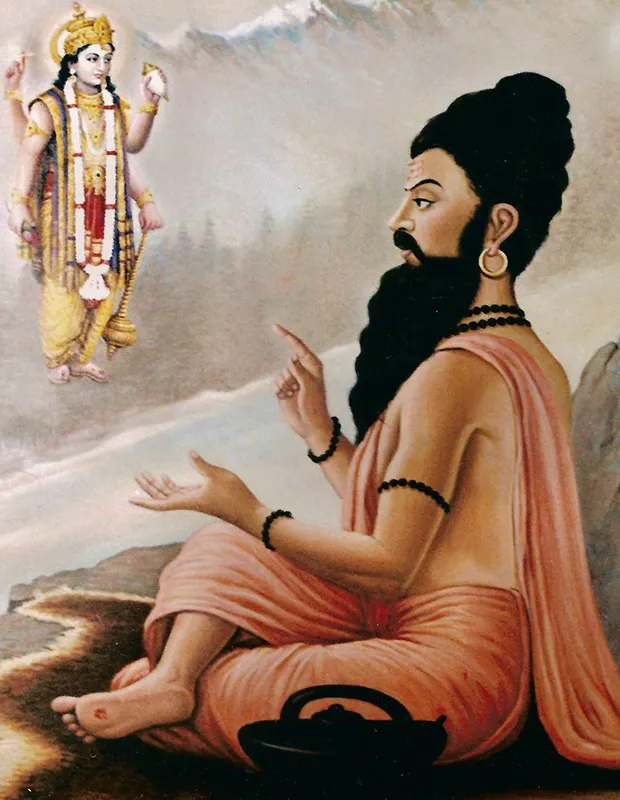
The concepts of Ashramas and Purusharthas stand as foundational elements in Hindu Beliefs and life. They create a framework for comprehending life’s different stages and the objectives individuals should strive for.
Ashramas:
Ashramas are four life stages that map a person’s journey from youth to old age, each with specific duties, responsibilities, and goals:
- Brahmacharya: The student stage, around 25. Focus on education, discipline, and learning skills under a Guru. Goal: Prepare for a fulfilling life.
- Grihastha: Householder stage, marrying, family, career. Active in society, family, and work. Fulfill duties, and uphold values.
- Vanaprastha: Around 50, gradual withdrawal from material pursuits. Hand over responsibilities, embrace spirituality, and self-discovery. Simpler, contemplative life.
- Sannyasa: Final stage, renunciate. Detachment from the world, dedication to spirituality. Shed possessions, family, and desires. Seek self-realization, and divine connection. Often involves seeking enlightenment.
Purusharthas:
Purusharthas encompass four overarching life pursuits, guiding individuals regardless of stage:
- Dharma: Righteousness, duty, morals. Guide for ethical choices in personal, familial, and societal roles.
- Artha: Material wealth, success, prosperity. Ethical economic and social well-being, self, family, society.
- Kama: Desires, pleasure, emotional enrichment. Pursuit of aesthetic, emotional experiences within Dharma’s bounds.
- Moksha: Spiritual pinnacle, liberation, enlightenment. Breaking samsara’s cycle, uniting with divine, self-realization.
In essence, Ashramas structure life stages, Purusharthas steer ethical living, prosperity, emotional fulfillment, and spiritual awakening. These concepts form a holistic view of purposeful, balanced life per Hindu Beliefs.
The Paths to Liberation:
Hindu Beliefs embrace an inclusive outlook, recognizing diverse routes to the divine. This inclusiveness is mirrored in the belief in multiple gods/goddesses, each embodying aspects of ultimate reality (Brahman).
Hindu Beliefs presents varied paths, yogas, for samsara’s liberation, catering to diverse personalities, aiming at divine connection and moksha.
Karma Yoga, selfless action; Bhakti Yoga, devotion; Jnana Yoga, knowledge; Raja Yoga, meditation—each suited to different temperaments. Paths intermingle; individuals blend. Despite distinctions, all lead to self-realization, and liberation.
Paths match personalities, acknowledging no one-size-fits-all. These yogas embrace diversity, creating a comprehensive framework for self-discovery, higher truths, and release from samsara.
Hindu Beliefs regarding Deities and Worship:
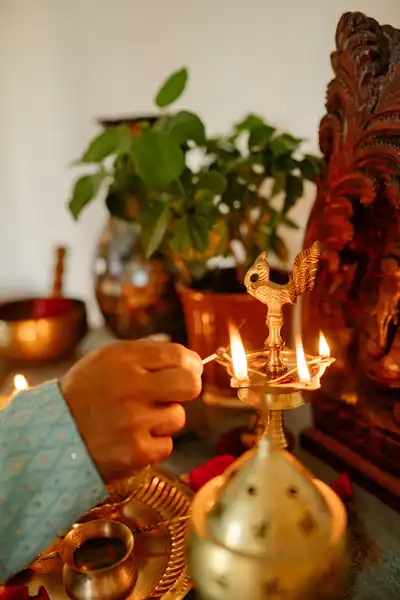
The Hindu deity pantheon weaves a complex tapestry of cosmic forces, mirroring life’s intricacies. These diverse deities embody various facets of existence, manifesting as expressions of Brahman.
Deities span creation, preservation, and destruction. Brahma creates, Vishnu preserves, and Shiva transforms. Goddesses embody wealth and knowledge. Deities reflect nature—Agni’s life force, Varuna’s cosmic order. Ganesha, elephant-headed, signifies new beginnings, overcoming challenges.
Deity worship via rituals, and festivals is integral. Devotees offer puja, adorning images with devotion. Diwali hails light’s triumph, Navaratri honors divine feminine, and Maha Shivaratri reveres Shiva’s cosmic dance.
Deity worship nurtures a personal divine bond, seeking blessings, guidance, and growth. It embraces diverse qualities, resonating with individuals. This practice merges spiritual aspirations with unique deity attributes, bonding human, and divine realms intricately.
Idols: Personal connection to the Divinity:
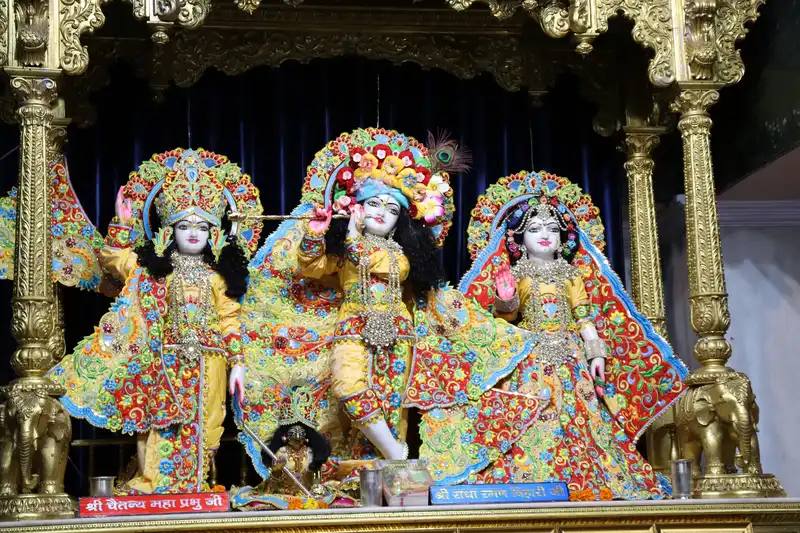
Idol worship, a key practice in Hinduism, involves revering physical representations of spiritual entities. Hinduism employs idol worship for multifaceted reasons:
- Symbolic Presence: Idols symbolize divine entities, aiding believers in envisioning the intangible. For those struggling with abstract aspects of the divine, idols provide a concrete and relatable focus for devotion.
- Enhanced Focus: Idols function as meditation tools, helping practitioners channel their thoughts and center their minds. Through contemplation of an idol’s symbolism, followers attain a state of focused meditation.
- Personal Bond: Idols embody human traits and tales, enabling adherents to connect personally with the divine. This connection nurtures an intimate and affectionate relationship between the worshipper and the revered.
- Cultural Identity: Idols mirror cultural and artistic expressions, safeguarding and propagating heritage. They serve as a conduit for passing down stories, myths, and values to successive generations.
- Heightened Spiritual Encounter: Engaging the senses through observing, touching, and at times even perceiving scents or tastes of offerings to idols amplifies the overall spiritual journey. This multisensory involvement further cements the bond between the devotee and the sacred.
- Embracing Diversity: Idols embody varied facets of the divine, embracing an array of spiritual leanings and convictions under one religious umbrella. This recognition of diversity underscores the intricate character of the divine.
- Tangible Prompt: Idols function as tangible cues for spiritual lessons and virtues, motivating worshippers to uphold ethical and moral principles in their day-to-day existence.
Significantly, within Hindu Beliefs, it’s crucial to acknowledge that alongside the prevalent practice of idol worship, there also exist philosophical schools and adherents who stress formless veneration or meditation on the divine’s abstract essence. Idols are viewed as tools, not ultimate goals, facilitating a link for individuals to engage with and ruminate upon the transcendental facets of the divine.
Rituals and Festivals:
Rituals and festivals bear deep significance in Hindu Beliefs, serving as conduits for spiritual expression, communal unity, and divine rejoicing. These practices blend with culture, fortifying ties between people and the divine.
Diwali, the Festival of Lights, symbolizes light’s victory over darkness. Families light lamps, exchange gifts, and honor goddess Lakshmi for wealth. Holi, the Festival of Colors, signifies joy, and unity via color play, honoring divine love.
Navaratri, for nine nights, venerates goddess Durga—through prayers, fasting, and dance. Maha Shivaratri, for Lord Shiva, involves meditation, vigil, and cosmic dance celebration.
Diverse regions enrich festivals. Onam in Kerala involves feasting, and Pongal in Tamil Nadu features special dishes. Durga Puja in West Bengal includes processions, Ganesh Chaturthi in Maharashtra—idol installation, immersion.
These celebrations transcend religion, embody culture, and unite communities. Rituals, and festivals reflect unity, spirituality, and heritage—bridging humanity, divine without boundaries.
The Pursuit of Knowledge and Wisdom:
ॐ असतो मा सद्गमय ।
तमसो मा ज्योतिर्गमय ।
मृत्योर्मा अमृतं गमय ।
ॐ शान्तिः शान्तिः शान्तिः ॥Om, O Lord, guide me away from the illusory world of unreality, and lead me towards the truth of the eternal self. Prevent me from dwelling in the ignorant state of darkness, and guide me towards the radiant light of spiritual knowledge. Keep me from the realm of mortality, and guide me towards the realm of immortality found in self-realization. Om, peace, peace, peace.
Brihadaranyaka Upanishad, Pavamana Mantra (1.3.28)
Hindu Beliefs revere knowledge and wisdom deeply, recognizing their role in self-realization and liberation. The pursuit of knowledge is a sacred path leading to higher truths and liberation from samsara’s cycle.
The Vedas, foundational texts, encompass rituals, philosophy, cosmology, and guiding divine connection. Upanishads explore reality, self, and oneness. Guru-disciple bonds transmit wisdom through humility and trust. Meditation, crucial for wisdom, stills the mind, connects with deeper consciousness, and reveals divine truths.
This quest is more than intellectual; it’s spiritually profound. Through texts, gurus, and meditation, seekers unveil mysteries and achieve liberation. Reverence for knowledge reflects wisdom’s transcendence over the mundane, fostering spiritual transformation, and divine connection.
Contemporary Relevance and Global Impact of Hindu Beliefs:
अयं निजः परो वेति गणना लघुचेतसाम्।
उदारचरितानां तु वसुधैव कुटुम्बकम्॥
The narrow-minded see one as kin, the other as foreign.
Maha Upanishad 6.71-73
The generous perceive the whole world as family.
Hinduism’s global influence expands through migration, globalization, and knowledge sharing. Its profound philosophy, inclusive outlook, and practices like yoga, and meditation resonate globally.
Hindu Belief’s allure rests in karma, dharma, and moksha, offering purpose transcending borders. Cultural adaptability fuels its popularity. Art, literature, and philosophy shape global culture and thought.
Yoga, meditation, and a Hindu-rooted lifestyle enhance physical and mental well-being. The Indian diaspora and migration spread Hinduism—the US, UK, and Canada become worship and cultural hubs. It’s important to highlight that Hinduism doesn’t propagate through violence, conquest, or missionary fervor, but rather through pure love and wisdom.
Global growth showcases universal teachings and lasting impact. Enriching philosophy, art, and culture, Hindu Beliefs’ spiritual fabric thrives beyond its origin in our interconnected world.

Conclusion:
सर्वेषां स्वस्ति भवतु । सर्वेषां शान्तिर्भवतु ।
सर्वेषां पूर्नं भवतु । सर्वेषां मड्गलं भवतु ॥
सर्वे भवन्तु सुखिनः। सर्वे सन्तु निरामयाः।
सर्वे भद्राणि पश्यन्तु। मा कश्चित् दुःख भाग्भवेत्॥
ॐ शांति शांति शांतिMay well-being embrace all, may peace dwell in all, may fulfillment grace all, may auspiciousness bless all. Om, may all be happy, may all be free from illness, may all perceive the auspicious, may suffering find no home. Om, peace, peace, peace.
The blog delves into the intricate realm of Hindu Beliefs, highlighting its ancient and diverse nature as a global religion. Emerging from India, Hinduism has evolved into a complex mosaic of beliefs, practices, and philosophies that address profound life inquiries. Central tenets of Hindu Beliefs, such as Brahman’s ultimate reality, interconnectedness via reincarnation and karma, and the moral duty of dharma, establish its foundation.
A diverse array of deities enriches Hindu Beliefs and spirituality, each embodying distinct life facets, nature, and cosmic forces. Rituals and festivals like Diwali, Holi, and Navaratri foster devotion, community, and divine reverence. Hindu Belief’s influence on philosophy, art, culture, literature, yoga, and meditation transcends boundaries.
The blog underscores the ongoing journey of exploration, inviting readers to embrace Hindu Beliefs and intricate nature. By engaging with core principles, rituals, and philosophy, readers can unearth insights for their spiritual path. As a faith that embraces diversity and evolution, Hinduism encourages self-discovery, cross-cultural understanding, and truth pursuit. Through exploration, individuals can uncover its wisdom, forging profound connections to spirituality and the world.
I aspire for this article to provide you with assistance. Should you discover value within these words, kindly contemplate sharing them with your loved ones. I invite you to spare a moment to offer your thoughts and appraisals below. For further remarkable content akin to this, I encourage you to delve into our website. Additionally, I extend an invitation to subscribe to my YouTube channel for forthcoming materials of similar nature. Lastly, feel unrestrained to establish a connection with me through social media. Wishing you a splendid day ahead!
हरि ॐ तत्सत्
FAQs:
Here are some frequently asked questions (FAQs) related to Hindu Beliefs:

